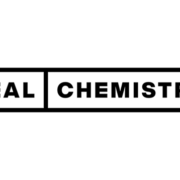Big data isn’t just for big pharma. How small companies can benefit, too
Big data isn’t just for big pharma. How small companies can benefit, too
There’s a lot of great medical research out there, with the potential for life-changing therapies that could help millions. But the vast majority of that research – much of it developed by universities and small pharma startups – doesn’t go beyond the lab. And even when a drug is approved and ready for market, figuring out exactly whom to market it to remains a pain point. To enable their science to change the world, pharma companies need an in-depth understanding of their market, including doctors, potential patients, and payers, as well as a plan on how to navigate it most effectively. This includes understanding their target audience, as well as the relevant channels they need to utilize in order to engage with that audience.
The kind of research needed for successful marketing and sales campaigns is expensive – and difficult to develop. According to Deloitte, “market access strategy and execution — lifesciences companies’ ability to demonstrate clinical and economic evidence, negotiate with healthcare access stakeholders, and enable affordable and timely product fulfillment for appropriate patients—is one of the primary contributors to product launch success and failure.” That is why, according to the report, “more than a third (36%) of all new launches in the United States fail to meet expectations.”
Data is Power
The research involved in drug commercialization is staggering. Until not too long ago, only the big pharma firms, with more personnel and resources, could afford full-fledged research. But thanks to advances in artificial intelligence, it’s not only pharma giants that have an advantage in finding the people who will benefit from treatments. Advanced data technology can enable smaller pharma firms, even startups, to reach the right doctors and patients with life-changing drugs. By relying on data-driven solutions, small pharmaceutical companies can make the most of their limited marketing resources and achieve efficiency and effectiveness in their commercialization and sales efforts. Advanced data tech can increase the efficiency of pharma marketing campaigns by up to 30%, cutting costs by some 25%, according to industry experts.
By tapping into large, anonymized databases, as well as other data sources, both inside and outside of the organization, small pharma firms and pharma startups can mine a wealth of information, and apply AI and other advanced analysis methods on how best to market their new and existing products. Companies can tap into databases that will enable them to determine which patient populations will benefit most from their therapeutics – and how best to deploy and market their products to HCPs treating these patients. Thousands of data points – including patient demographics, location, insurance, severity of conditions, other medical problems, and much more – can help even small pharma firms target specific patient populations that most need their products.
AI Platforms Provide Efficiency and Autonomy
To accomplish this, small pharma firms can partner or collaborate with AI companies or research institutions that specialize in commercial healthcare and pharmaceutical applications – enabling them to gain access to cutting-edge AI technologies, larger data sets and expertise, without the need for large in-house AI development teams. To make things even more efficient, small companies can seek out organizations that provide platforms that clients can use. Such platforms – as opposed to working with consultants – will enable small companies to utilize the data and strategies that work best for them, on their own, a true self-service model. These platforms also work in real-time, with constantly refreshed data, allowing pharma companies to plan the most relevant outreach campaigns. Working with platform vendors and data firms that specialize in pharma is essential, because it’s likely that only firms with such experience will be able to atomize data into areas pharma firms need, utilizing HCP 360, Veeva, and the like.
Armed with information about market demand and patient needs, small pharma firms can efficiently reach out to the appropriate health care providers with new drugs. Rather than simply targeting the largest practices, they can target those doctors and practices serving patients that are known to need the drug. For example, a drug company can find out which practices are treating people in a certain age group with a certain condition, or are treating patients most likely to have a successful experience with the drug or to suffer from the least amount of side effects.
The same applies to drugs that are already in a company’s catalog, including those that may have new approved secondary or off-label uses. Research may show that those existing drugs could be repurposed to treat other conditions – but beyond the research regarding efficacy, companies need to determine how a product will be received by doctors, patients, HMOs, and insurance companies. With AI and data-analysis, pharma companies will know exactly which doctors are likely to prescribe the drug for secondary use, and also what the concerns of these doctors and their patients may be, allowing pharma companies to tailor their marketing information to answer specific questions.
Launching Marketing and Sales with the Tight Patients in Mind
Even while a drug is still in development, if a pharma company has a targeted marketing and sales plan for it, this can help guide its scientific resources in the right direction, and help make the case to partner with bigger companies that can help it complete their research, and turn that research into an actual product. For example, a small company developing a breast cancer therapy may find – based on the data – that their potential product will be most effective for women who have previously undergone radiation therapy, and are currently taking biological-based drugs for their conditions. Anonymized data about patient conditions and outcomes, paired with AI-generated data about how their therapy affects patient groups, will help companies narrow down the patient population group that will most benefit from their therapy.
Thanks to AI, you don’t need to be a big-pharma deep-pockets drug maker – or even an established pharma firm at all – in order to develop or market a drug that will have a major impact on a patient population. Advanced data technology can enable smaller pharma firms, even startups, to develop and market promising ideas and treatments that can truly be life – and world – changing.
 |
Doron Aspitz is the CEO of Verix, a company that provides AI-driven analytics for the pharmaceutical industry. |









